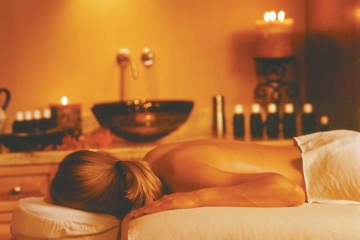
In her national bestseller “The Highly Sensitive Person,” Elaine Aron describes four kinds of rest that are essential for highly-sensitive (and I’d add depressed) persons:
Sleep
If you have trouble sleeping, make this your first priority. Research on chronic sleep loss has found that when people are allowed to sleep as much as they need, it can take two weeks for them to reach the point where they show no signs of sleep deprivation (dropping off to sleep abnormally quickly or in any darkened room). If you are showing signs of “sleep debt,” you need to plan some vacation time periodically that allows you to do nothing but sleep as much as you want. You will be surprised by how much that will be.
Highly-sensitive persons do worse than others working night shifts or mixed shifts, and they recover more slowly from jet lag. Sorry, but it goes with the territory. Better not to plan, or at least not to plan to enjoy, brief trips across many time zones.
If insomnia is a problem, you can find plenty of advice on that in other sources. There are even centers for treating it. But here are some points that may apply especially to highly-sensitive persons. First, respect your natural rhythms and retire when you first become sleepy. For a morning person, that means going to bed early in the evening. For a night person, the ones with the more difficult problem, it means sleeping late as often as possible.
Sleep researchers tend to advise people to associate bed only with sleeping and to get up if they cannot sleep. But I find highly-sensitive persons sometimes do better if they promise themselves to stay in bed for nine hours with their eyes closed without worrying if they are actually sleeping. Since 80 percent of sensory stimulation comes in through the eyes, just resting with your eyes closed gives you quite a break.
The problem with staying in bed while awake, however, if that some people begin to worry or otherwise overarouse themselves with their thoughts and imaginings. If this happens, it might be better to read. Or get up and think through the issue on your mind, write down your ideas or solutions, then go back to bed. Sleep problems are one of those many areas where we each are unique and must find what works for ourselves.
Play
We need other kinds of rest, too, however. Highly-sensitive persons tend to be very conscientious and perfectionistic. We cannot “play” until all the details of our work are done. The details are like little needles of arousals poking us. But that can make it difficult to relax and have some fun. The infant/body wants play, and play creates endorphins and all the other good changes that undo stress. If you are depressed, overly emotional in other ways, not sleeping, or slowing other signs of being out of balance, force yourself to plan more play.
But what is fun? Be careful not to let the non-highly-sensitive persons in your world define that for you. For many highly-sensitive persons, fun is reading a good book or gardening a little bit, at their own pace, or a quiet meal at home, prepared and eaten slowly. In particular, squeezing in a dozen activities by noon may not be your idea of fun at all. Or it may be okay in the morning but not by afternoon. So always plan a way to bail out. If you are with someone, be sure to warn them ahead of time so that they will not feel insulted or hurt when you drop out.
Finally, when planning a vacation, consider the cost in terms of airline tickets or deposits if you decide you want to come home early or stop traveling and stay in one place. Then be mentally prepared ahead of time to pay that cost.
Downtime
Besides sleep and recreation, highly-sensitive persons also need plenty of “downtime” just for unwinding and thinking over the day. Sometimes we can do this while performing our daily tasks–driving, washing dishes, gardening. But if you have found ways to eliminate some of those tasks, you still need that downtime. Take it.
Prayer
Yet another form of rest, perhaps the most essential, is “transcendence”–rising above it all, usually in the form of meditation, contemplation, or prayer. At least some of your transcendent time should be aimed at taking you out of all the ordinary thinking, into pure consciousness, pure being, pure unity, or oneness with God. Even if your transcendence falls short of this [that would be me], when you return you will have a bigger, fresher perspective on your life. . . . Meditators show less of the distressing long-term arousal (cortisol, the stress hormone, in meditators’ blood decreases). It is as if their meditations give them some of the needed feeling of security and inner resources.
* Click here to subscribe to Beyond Blue! And click here to follow Therese on Twitter. And click here to join Group Beyond Blue, a depression support group. Now stop clicking.

